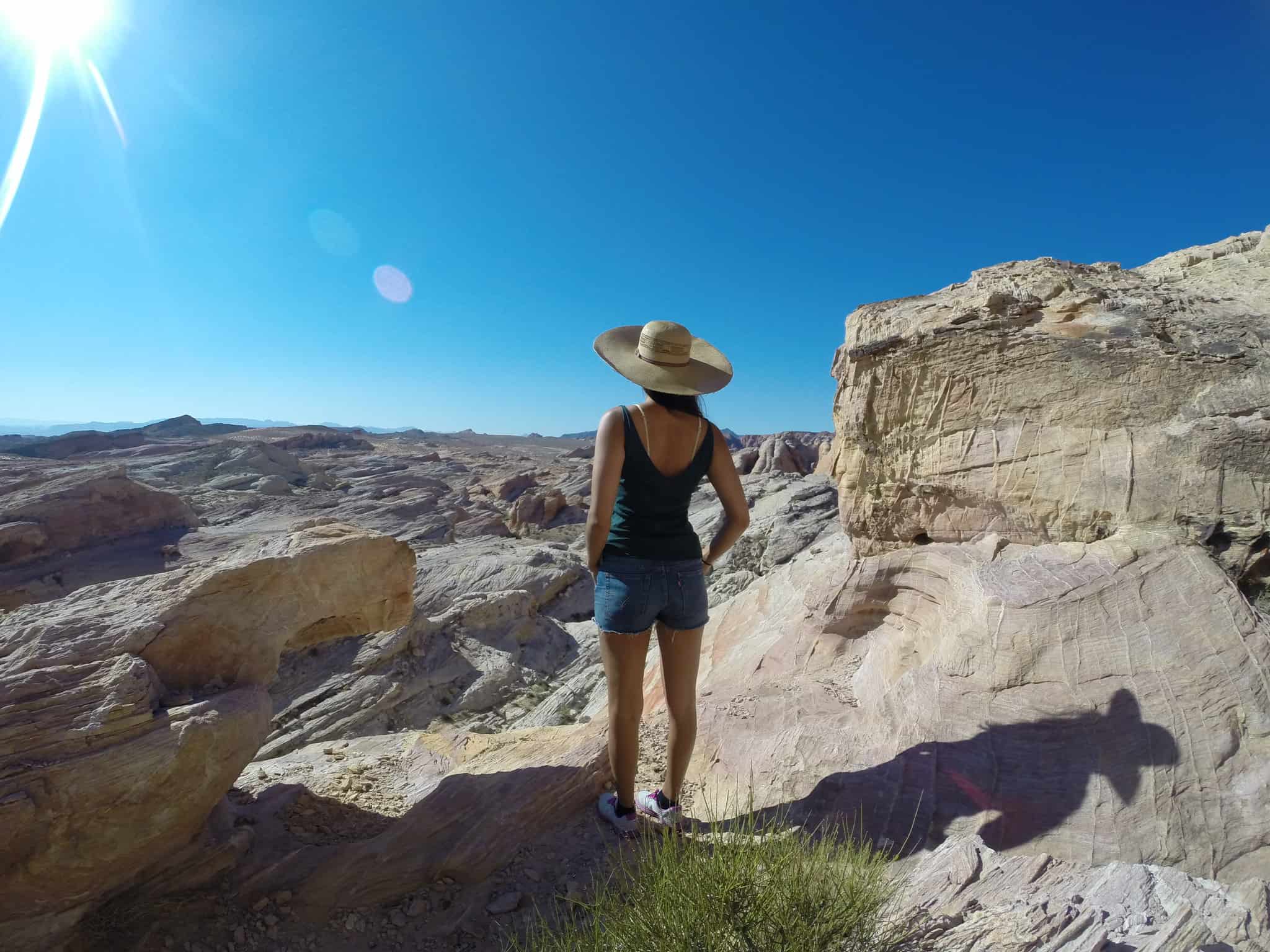Last updated on April 13th, 2021 at 10:31 pm
If you’re struggling with anxiety and depression, getting into nature can help. Not only is it a great way to blow off steam, it’s basically free medicine. While hiking can boost your mood and physical fitness, it promotes confidence and overall health as well.
Hiking can help fight anxiety, stress, and depression (source) while being one of the easiest workouts. Even just a small jaunt outdoors can get you a much needed boost of endorphins. By adding hikes into a consistent exercise schedule, your body and mind can begin healing.
How Hiking Changes Your Brain
Physical activity increases blood flow to your brain. In response, the brain is stimulated to release chemicals that promote a happy mood.
For example, exercise increases the availability of serotonin, gamma aminobutyric acid (GABA), brain-derived neurotrophic factor (BDNF), and endocannabinoids (source).
Studies have shown that hiking in forested areas actually may result in higher release of these chemicals. As a result, hiking in nature is more beneficial than walking in the city (source).
Reduces Stress and Anxiety
In addition, setting aside time for yourself works wonders for mental health. Even just a 10-20 minute hike can help you gain traction when conquering stress.
RELATED: Planning the ULTIMATE Sunrise Hike
With a clear mind, hiking can also stimulate the production of ‘feel good’ neurotransmitters called endorphins (source).
Often referred to as ‘runner’s high,’ this euphoria is experienced long after your trek in nature.
Combats Depression
Anything that decreases stress can greatly diminish your risk for a variety of ailments including depression.
Studies have shown that brisk aerobic exercise may stimulate the production of serotonin (source).
A natural anti-depressant, serotonin also helps regulate anxiety, sleep, and digestion.
Encourages Better Sleep
Additionally, getting enough rest may also decrease your stress levels. A great night’s sleep is often disrupted by stressful thoughts. Physical activity can help alleviate those thoughts and provide a much needed break for your mind.
Hiking can break up your weekly routine into manageable parts and promote better sleep. Moreover, you’ll also burn off some energy to help you feel tired at night.
How Hiking Changes Your Body
Hiking is not only good for the brain, it’s great for the body. It may not be a surprise, but hiking is terrific exercise. Consistent exercise can alleviate and prevent long term issues that are result of a sedentary lifestyle.
Nature hikes can increase your metabolism, ease bowel issues, and reduce high blood pressure. All of which may have a hand in compounding issues of stress, anxiety, and depression.
Great Cardio for More Energy
When considering an easy and enjoyable workout, you need not look much further than hiking. When trail involve hills, hiking can be a great cardiovascular workout.
Overtime, aerobic activity will help your body use oxygen more efficiently. This results in improved capacity to send oxygenated blood throughout the body. Thus, hiking and cardio exercise is great for elevating your energy levels.
Elevating your energy levels can be an additional tool to fight anxiety and depression.
Increases Strength and Tone
By flexing muscles and joints on a regular basis, hiking can keep you feeling good longer. Consistent exercise helps alleviate daily aches and pains.
Building strength and endurance doesn’t only boost mood, but also self-confidence and self-esteem. Besides getting physically toned, hiking strengthens the link between body and mind.
Decreases Pain Sensitivity
While you’re out on the trails consider this. Not only are endorphins mood boosting, they also relieve pain.
Endorphins are peptides that stimulate opiate receptors in the brain. When more is produced, you actually feel a sort of euphoria, decreasing overall body pain (source).
Therefore, by increasing exercise your body actually produces more of its own pain relief.
Getting Outside is Step One
Exercise may be the last thing on the mind if you’re feeling stressed. Often our lifestyles push our mental health to the side in favor of productivity. Or it may be very intimidating if you suffer from depression. The first step is getting out there.
Even if it’s just small commitments in the beginning. Start small, one day a week of heading to the park may become a full fledged addiction to nature. Remember the potential for euphoria, you may want to commit to buying some nice hiking shoes. As always, start with what you’re comfortable with. The idea isn’t to overextend yourself, but to build a relationship with yourself one trail at a time.
Image Credit: Adam Bautz| (source) |Attribution 2.0 Generic (CC BY 2.0) — reduced file size and image


Comments are closed.